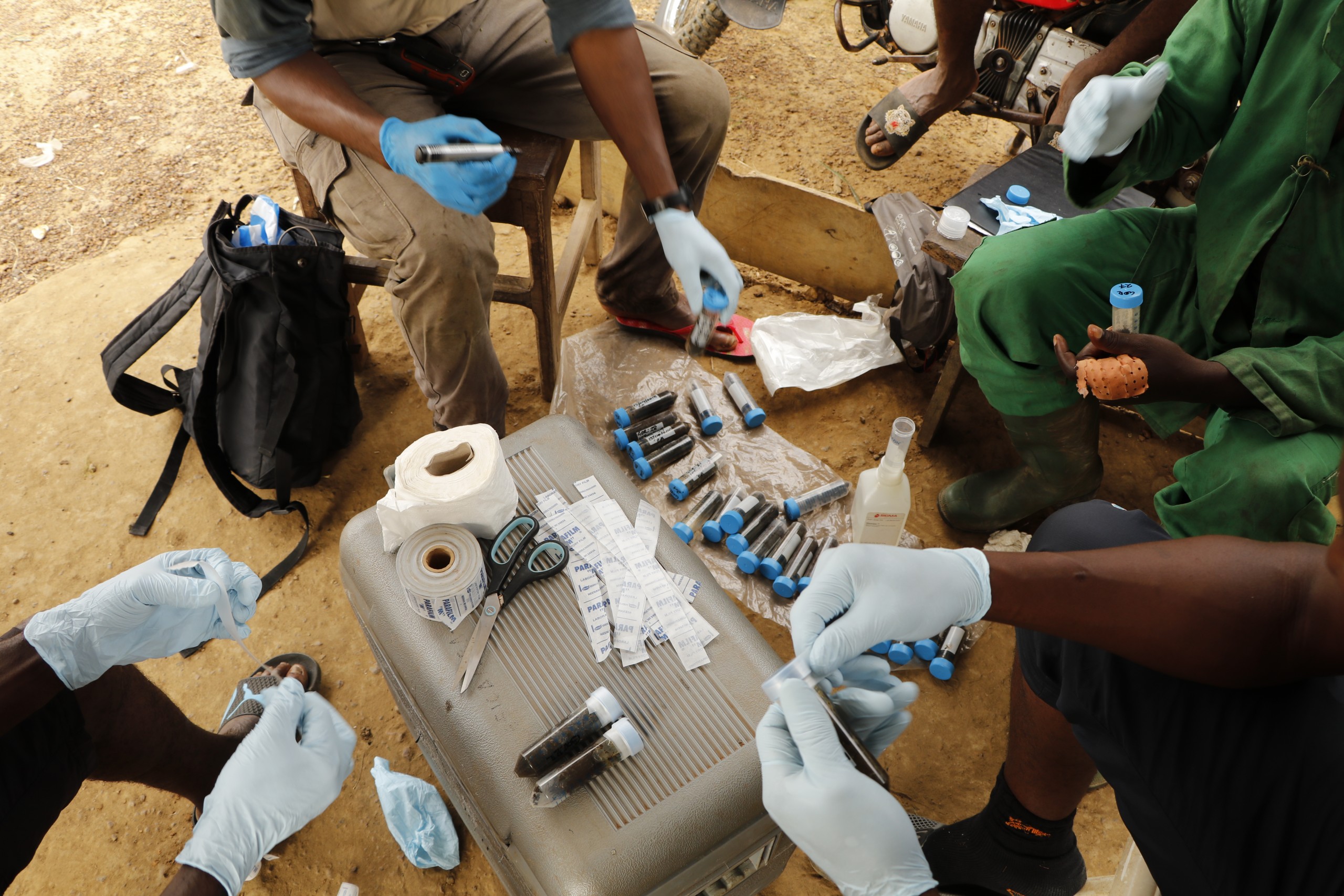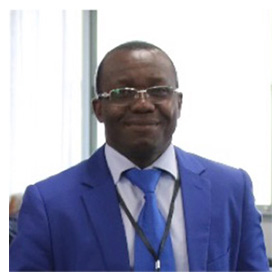Driven by the OIE Programmes Department and the OIE Sub Regional Representation for North Africa and supported by the EBO-SURSY project1 as well as the REDISSE project2 , the Regional Seminar for OIE National Focal Points for Veterinary Laboratories took place in Tunis, Tunisia from 18-20 September 2018. Worldwide, the OIE has 161 nominated Laboratory Focal Points, of whom 31 per cent are women, 66 per cent work in the laboratory setting at the management level, and 75 per cent hold a doctoral degree or equivalent. The Tunis seminar brought together 36 African OIE Laboratory Focal Points, including eight (Cameroon, Cote d’Ivoire, Democratic Republic of the Congo, Gabon, Guinea, Liberia, Republic of the Congo, and Senegal) of the ten EBO-SURSY countries.
Leveraging the OIE’s existing technical resources and expertise to enhance the project’s impact, the seminar used Ebola Virus Disease (EVD), which originates from animals and can be transmitted to humans, as a case study for multiple practical exercises, allowing the activities to not only benefit the target countries of the EBO-SURSY project but to also reach countries throughout the OIE’s Africa Region. By sensitising participants to the specificities of EVD, the seminar also supported Focal Points to develop skills and knowledge that are transferable to the management of any other zoonosis and/or animal disease. Understanding and implementing these best practices is essential to a country’s capacity to identify, monitor and prevent the transmission of diseases both between animals and from animals to people.
Considering that the risks contained in biological samples cannot be fully known until all lab results have been processed, the seminar highlighted the importance of attendees’ full compliance with OIE International Standardsfor specimen collection and transport. Given that 60 percent of all infectious diseases affecting humans are zoonoses, meaning they can transfer from animals to humans, as are at least three quarters of emerging infectious diseases, these discussions also emphasised that laboratory professionals from at-risk areas should always have haemorrhagic fevers, including EVD, and other pathogens in mind when assessing biological risk and should ensure the compliance of their laboratories with OIE International Standards.
Veterinary laboratories provide essential services for the surveillance of animal diseases and their compliance with OIE International Standards is also a core element of the EBO-SURSY project as well as the broader OIE mandate. The EBO-SURSY project is facilitating two Twinning Projects between laboratories in Senegal and Cameroon with OIE Reference Centres in France and Germany, respectively, which further complement National Focal Point training initiatives for veterinary laboratories and reinforce good laboratory management, transport of specimens, biological risk analysis, quality management, and laboratory networking.
Building laboratory diagnostic capacity also means reinforcing stakeholders’ ability to manage information flow and communicate not only about best practices but also about their technical and capacity building needs in order to secure access to the resources needed to continue reinforcing national laboratory capacities in compliance with OIE International Standards. To this end, both the global OIE Laboratory Focal Point Programme and the EBO-SURSY project hope to continue building on their successful collaboration with a regional leadership training workshop in late 2019 that will once again allow the project’s impact to reach beyond its ten target countries to a wider group across the African Region.
Director of the Laboratoire National Vétérinaire (LANAVET) Annex Yaoundé in Cameroon, Dr. Abel Wade has been an OIE Laboratory Focal Point for the past four years and is actively working to improve communication and information sharing among other focal points in Africa, including creating a WhatsApp group for the Tunis seminar attendees. Using this communication tool, Dr. Wade is also making the most of his expertise in molecular microbiology, biosafety and biosecurity to connect his peers with relevant and innovative information resources and articles, including free online American Biosafety Association (ABSA) training courses. With the support of the EBO-SURSY project, Dr. Wade’s laboratory, LANAVET, is participating in a twinning project with the Friedrich Loeffler Institute (FLI) Germany with the ultimate objective of becoming an OIE collaborating center. Dr. Wade notes that “this process will reinforce LANAVET’s diagnostic capacity for hemorrhagic fevers like EVD as well as a variety of other diseases.” As he looks to the future, Dr. Wade hopes to continue building on the region’s considerable achievements in laboratory capacity building by working closely with the OIE within the focal point system to create more opportunities for knowledge exchange and active participation in OIE decision-making.
Learn more about the EBO-SURSY Project here
Photos: © OIE/Sophie Muset
1 With the financial support of the European Union, , the OIE-led EBO-SURSY project aims to reinforce the capacity of national Veterinary Services in ten West and Central African countries to monitor and respond to the Ebola virus as well as four other priority zoonotic diseases – or diseases that can spread from animals to humans in what is known as a spillover event –Rift Valley Fever.

